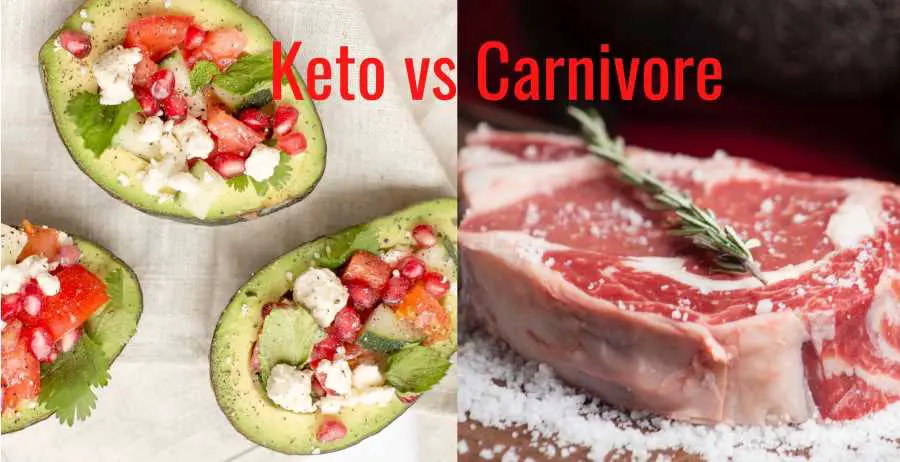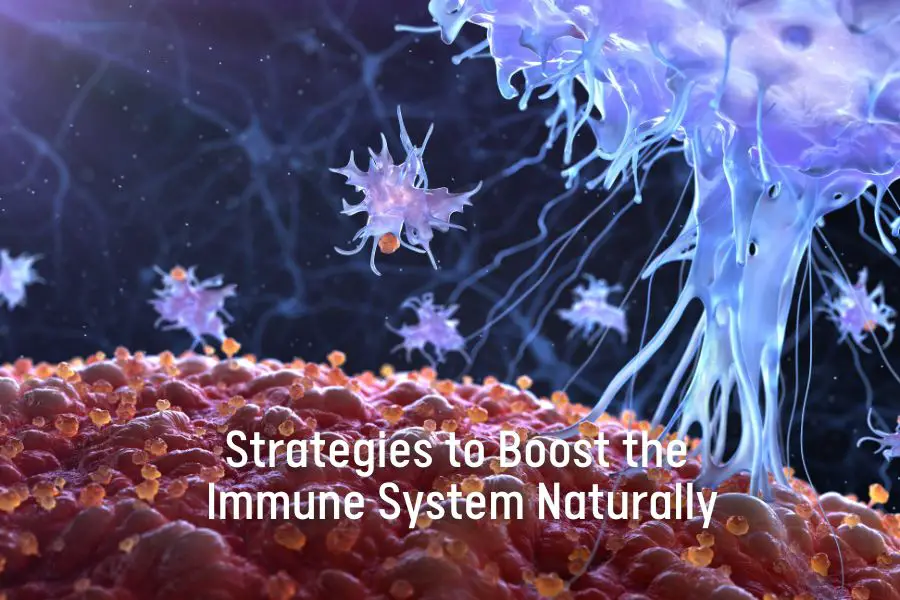The ketogenic diet is well-known for weight loss as well as treating a number of medical conditions. The carnivore diet, however, has only become popular in the last few years but people on this diet have also reported many health benefits. So which diet is better? We will look at this question in detail in this post. If you are just after a short answer, here it is:
The carnivore diet is better than the ketogenic diet because its foods are all animal-based which are nutrient-dense, free from plant toxins, and highly bioavailable. You can also generally stay in ketosis on the carnivore diet without the need to count macros carefully like on the ketogenic diet.
In the remainder of this post, we will look at the ketogenic diet and the carnivore diet briefly and the reasons why the carnivore diet is better than the general ketogenic diet.
Ketogenic diet
What is the ketogenic diet?
The ketogenic diet is a diet that is high in fat, moderate in proteins, and low in carbohydrates.
Calories on this diet are divided into approximately 55-60% from fat, 30-35% protein, and 5-10% carbohydrates.[1] Some sources cite a slightly different macro ratio but the key to this diet is to maintain a low carbohydrate intake as explained below.
Your body’s preferred source of energy is carbohydrates which are converted to sugar once consumed. It will rely on carbohydrates as a primary fuel source as long as the supply is sufficient.
However, if the carbohydrate intake is less than 50 grams a day, glycogen stores will soon be depleted and your body will begin a process called gluconeogenesis to produce glucose endogenously from lactic acid, glycerol, and the amino acids alanine and glutamine.[2]
When glucose availability drops further and the endogenous production of glucose is not able to keep up with the body’s demand, it will start breaking down fatty acids and produces ketone bodies for energy. When this happens, your body is said to be in the state of ketosis.[3]
As long as carbohydrate intake remains negligible, your body will stay in ketosis. However, ketosis can also happen during prolonged fasting or starvation when your body uses up its own fat reserve to keep going. And this is one of the main reasons why being in ketosis is desirable: your body learns to use fat for fuel and can effortlessly dig into its own fat reserve to function and burn fat. This consequently leads to fat loss.
What to eat on the ketogenic diet?
On the ketogenic diet, to remain in ketosis, you need to restrict carbohydrates to about 20 to 50 grams a day.[4]
There is no food restriction on the ketogenic diet, you can eat anything you like but you will need to make sure that overall, it is a high fat, moderate protein, and low carb diet.
Foods that help you stay in ketosis are fatty cuts of red meat, pork, chicken, oily fish, full-fat yogurt, butter, cheese, nuts, seeds, and low-carb fruit and vegetables.
Benefits of the ketogenic diet
Evidence indicates that the ketogenic diet and the state of ketosis can help with the following:[5, 6]
- Weight loss
- Cardiovascular diseases
- Type 2 diabetes
- Epilepsy
- Skin condition
- Cancer
- Polycystic ovary syndrome
- Neurological diseases
- Alzheimer’s disease
- Parkinson’s disease
- Brain trauma
- Amyotrophic lateral sclerosis.
The Carnivore Diet
What is the carnivore diet?
A carnivore is an animal that feeds on other animals. Therefore, strictly speaking, by definition, someone on the carnivore diet will basically just eat animal source food such as ruminants, pork, poultry, and seafood and drink water.
However, a broader version of the carnivore diet can include all foods that come from or are produced by an animal including ruminant meat (e.g. beef, lamb, goat, and bison), pork, poultry, seafood, eggs, dairy, and honey.
What to eat on the carnivore diet?
On the carnivore diet, all you can eat are food from the animal kingdom. Some reported doing well with just muscle meat and water. However, some advocates a nose-to-tail approach on this diet where one eats not just meat but also organ meats because they are considered the most nutrient-rich food. For example, liver is a rich source of protein, iron, zinc, riboflavin, niacin, vitamin A, folate, and vitamin B12. Kidney is rich in protein, thiamin, riboflavin, iron, and a source of folate.[7]
Unlike the ketogenic diet, there is no need to maintain a certain macronutrient ratio on this diet. Eat fresh unprocessed meat, eat nose-to-tail and eat a variety of food, and you’ll be alright. This is how our ancestors ate for millions of years, the meat of large animals, scavenged or hunted.[8]
Evidence on the health benefits of the carnivore diet
- Evidence from human physiology and genetics, archaeology, paleontology, and zoology indicates that our ancestors were exclusively meat-eaters for millions of years and had actually thrived on this diet. The human brain exploded in size from 650cc around 2.6 million years ago to 1500cc before the dawn of agriculture. If this diet was fundamentally deficient in nutrition or caused a whole host of health problems from heart diseases to cancer, we certainly wouldn’t be where we are today [9]
- Healthy tribes on a meat-based diet. Some hunter-gatherer groups like the Canadian Inuit, the Maasai tribe from Kenya, the Gauchos in South America, the Mongolian nomads also follow either an exclusively animal-based diet or a heavily meat-based diet but appear to be healthy. [10, 11, 12, 13, 14] Some of these traditional tribes who have transitioned to a more Western-style diet with an increase in processed food and refined carbohydrate intake have experienced increased health risks including poor dental health, diabetes, obesity, and heart diseases [15, 16]
- Successful treatments of medical conditions with a meat-based diet. The International Center for Medical Nutritional Intervention clinic in Hungary used a meat-based diet called ‘Paleolithic Ketogenic Diet’ to successfully treat an extensive range of chronic conditions such as leaky gut, type I diabetes, type II diabetes, cancer, Crohn’s disease and other autoimmune conditions since 2013.[17, 18, 19, 20, 21, 22, 23, 24, 25, 26]
- Anecdotal evidence. While there has been no recent scientific research on the health benefits and its associated risks, the carnivore diet has shot up in popularity thanks to anecdotal evidence from people like Dr Shawn Baker and Mikhaila Peterson. Many other people have also managed to lose weight, treats health problems that modern medicine has failed, and improve their general well-being on this diet.[27]
Which diet is better?
In my view, the carnivore diet is better than the ketogenic diet because:
- Carnivore diet food is free from plant toxins
- Carnivore diet food is nutrient dense
- Carnivore diet food is highly bioavailable
- The carnivore diet is in fact a ketogenic diet without the need to count macros.
Carnivore diet food is free from plant toxins
As plants are stuck to the ground and can’t defend themselves like the way animals do, to deter predators, they produce toxins, in their leaves, stems, flowers, seeds, and roots. Although plants can be full of nutrients, they are also full of toxins or natural pesticides.
In a landmark paper titled “Dietary pesticides (99.99% all natural)” published over three decades ago, Dr. Ames who is the inventor of a very important test for mutagenicity, and his team estimate that:
Americans eat about 1.5 g of natural pesticides per person per day, which is about 10,000 times more than they eat of synthetic pesticide residues…
Even though only a tiny proportion of the plant toxins in our diet have been tested so far, the 27 natural pesticides that are rodent carcinogens are present in the following foods: anise, apple, apricot, banana, basil, broccoli, brussels sprouts, cabbage, cantaloupe, caraway, carrot, cauliflower, celery, cherries, cinnamon, cloves, cocoa, coffee, collard greens, comfrey herb tea, currants, dill, eggplant, endive, fennel, grapefruit juice, grapes, guava, honey, honeydew melon, horseradish, kale, lentils, lettuce, mango, mushrooms, mustard, nutmeg, orange juice, parsley, parsnip, peach, pear, peas, black pepper, pineapple, plum, potato, radish, raspberries, rosemary, sesame seeds, tarragon, tea, tomato, and turnip.
Thus, it is probable that almost every fruit and vegetable in the supermarket contains natural plant pesticides that are rodent carcinogens. The levels of these 27 rodent carcinogens in the above plants are commonly thousands of times higher than the levels of synthetic pesticides.[28]
You can read the full paper here.
In my view, eating a small amount of plant food with seasons can help you meet all nutritional requirements more easily and maintain metabolic flexibility. However, it doesn’t make sense to eat a lot of plant food and consume these toxins while you can eat animal-based food that is free from toxins and nutrient-dense, a point that we will look at below.
Carnivore diet food is nutrient dense
Animal source food is the best source of proteins. This is because animal proteins are complete proteins, i.e. they contain all essential amino acids that your body needs, whereas plant proteins generally lack one or two essential amino acids. [29, 30]
Animal source food is also the best source of vitamins and minerals. It can provide all essential vitamins and minerals that your body needs in the right ratio and in readily bio-available forms. There is no nutrient that the human body needs that you can’t find from an animal source. In this post, I argue that there is no risk of malnutrition on the carnivore diet if it is followed properly. Please check it out if you are in doubt.
Carnivore diet food is highly bioavailable
Animal-based foods are highly bio-available because your body relies on its own natural enzymes to break them down rather than relying on intestinal bacteria to help digest as is the case with plant foods. This results in virtually no gases produced during the digestive process.[31]
Furthermore, there is also no fiber in animal-based foods to obstruct the process of digestion as is the case when you consume plant foods high in fiber. Contrary to the popular belief that a diet lacking in fiber can cause constipation, a study has found that “idiopathic constipation and its associated symptoms can be effectively reduced by stopping or even lowering the intake of dietary fiber”.[32, 33]
As mentioned above, carnivore diet food is free from plant toxins by definition, hence there are no anti-nutrients that can interfere with the proper absorption of nutrients from your diet.[34]
The carnivore diet is a ketogenic diet without the need to count macros
The carnivore diet is generally a ketogenic diet that you don’t need to count macros to stay in ketosis. This is because the proportions of fat and proteins of the carnivore diet food are generally consistent with the typical macronutrient composition of the ketogenic diet.
The macronutrients on the ketogenic diet are divided in terms of calories into approximately 55-60% fat, 30-35% protein, and 5-10% carbohydrates. [35] As can be seen from the table below, the percentages of calories from fat and protein of some staple carnivore diet food are generally consistent with the above macronutrient composition on the ketogenic diet.

The staple carnivore food listed in the above table has from 51% to 76% calories from fat, with an average of 66%. This is even higher than the general 55% to 60% recommended on the ketogenic diet.
If you regularly add fattier cuts or fats to your diet, for example, animal fat, butter, and cheese which have 75% to 100% calories from fat, the overall fat percentage of your meal can easily exceed the fat percentage recommended on the ketogenic diet.
In short, by choosing just regular cuts and adding a bit of fat here and there, you will have no problem staying in ketosis on the carnivore diet.
However, if you drink a lot of milk (e.g. 4-5 cups a day) or add honey very liberally to your carnivore treats, you might be out of ketosis.
Conclusion
Life is too short to count calories.
If you find that you need to stay in ketosis for whatever reasons, the carnivore diet is a diet that can help you stay in ketosis without the need to count macros or calories.
If you are looking for a diet that is better than the ketogenic diet, look no further. The carnivore diet is definitely worth a try given the fact that so many people have benefited from this way of eating.
As always, do your own research and talk to your doctor. If you would like to try and see how the carnivore diet compares to the ketogenic diet, here is a free guide on how to start.
Disclaimer: The information in this post is for reference purposes only and not intended to constitute or replace professional medical advice. Please consult a qualified medical professional before making any changes to your diet or lifestyle.





